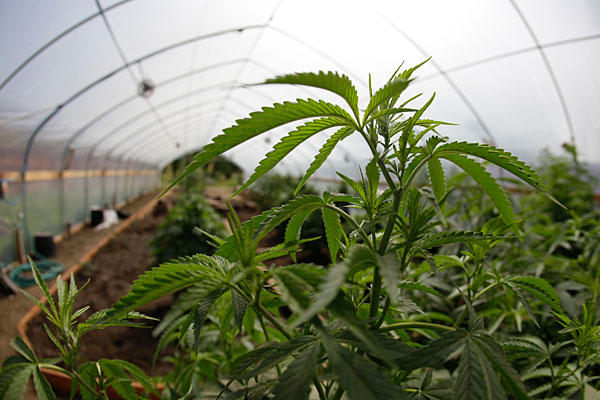Marin Grand Jury Rejects CA High Court's Decision on Banning Pot Shops

Following the California Supreme Court's decision allowing cities to use zoning ordinances to ban medical marijuana dispensaries, several municipalities have become very vocal regarding the issue of medical cannabis.
The Civil Grand Jury of Marin County issued a report last week, titled "Medical Marijuana: Up in Smoke." In its report, the grand jury calls on county officials and lawmakers to better represent the interest of those they govern. The report also references the fact that seventy-three percent of county residents voted in favor of the Compassionate Use Act back in 1996.
Not only were state lawmakers targeted for their lack of opposition to the decision, but city councils were as well. The grand jury placed blame on city councils, for "bowing to the complaints of the minority of folks who live near the medical marijuana dispensaries," which they refer to as "the NIMBY effect."
Through moratoriums, enacting bans on the dispensaries, and using zoning regulations to prohibit their operation, the grand jury felt lawmakers were overstepping the constitutional rights of medical marijuana cardholders.
The grand jury cites three studies in their report, one conducted by the National Institute of Health in particular, which ultimately concludes “that there is no increase in crime in neighborhoods around dispensaries.” This seems to remain the number one preoccupation of those favoring dispensary closure.
They further cite cases in Mill Valley, San Rafael, Larkspur, and Novato municipalities; all of them passed bans on dispensaries. Currently, Marin Holistic Solutions is the only dispensary operational within Marin County. An agreement with the town allows its doors to remain open until spring 2014.
How are other counties approaching this issue?
In Los Angeles county, which has been struggling with this issue for the last five years, voters will head to the polls on Tuesday to decide how the county deals with medical marijuana.
This is in response to an 11-1 city council vote that instructed lawyers to draw up ballot measures restricting the number of dispensaries allowed in the city. One of these ballot measures, Proposition D, would close dispensary doors opened after the city's 2007 moratorium (roughly 135). The proposition would also entail a slight increase in taxes.
Two other ballot measures, propositions E and F, also address the issues of how to tax this business. Proposition E is similar to Prop. D, but wouldn't create any new laws. Though Proposition F would raise new taxes on dispensaries, it would require strict background checks and audits on dispensary employees.
The Los Angeles City Council approved a dispensary ban last summer, but then repealed it after enough signatures were collected for a ballot measure. The proposition with the majority of votes collected will be put into effect, but if none receive at least fifty percent of the vote, it will go back to city council.
Overall, the main concern regarding dispensary operations is the fear of crime associated with a substance that is illegal federally, but is legal in California for medical purposes.
“There’s been absolutely no control, and that’s what has hurt the city,” said Brennan Thicke, who runs the Venice Beach Care Center. “At this point, voters need to finally decide this issue. There’s been an overwhelming belief in this city that medical marijuana should not go away.”
There are arguments to be made on both sides of the spectrum. Though the Marin County Civil Grand Jury has been on the offensive, fighting to keep medical marijuana dispensaries up for a clear majority of licensed users, Los Angeles seems to be taking a laissez faire approach. Ultimately voter turnout will determine the fate of dispensaries in the second largest city in the U.S.




